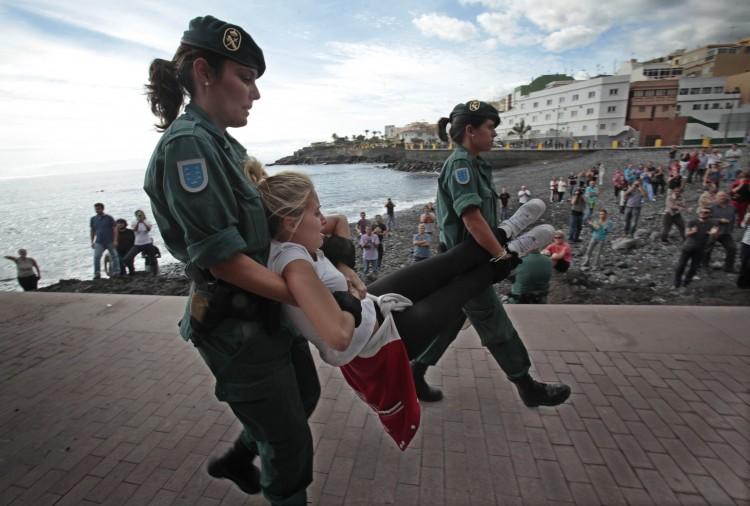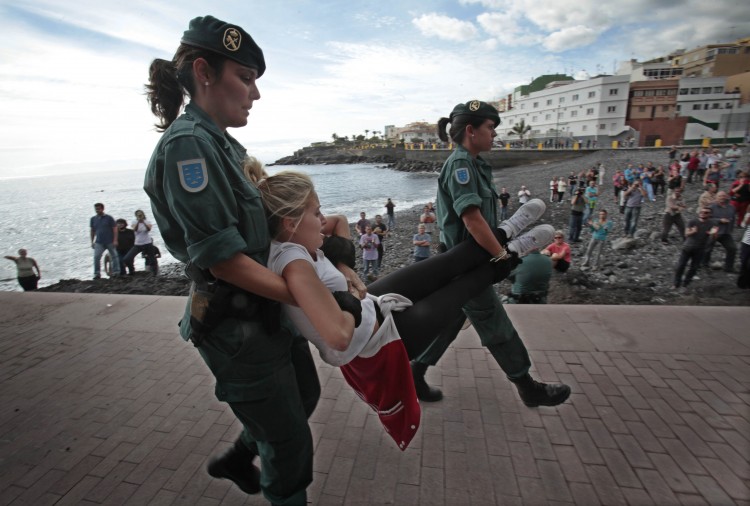Locksmiths around the Spanish city of Pamplona have said that they will no longer assist banks in changing the locks on homes of people whom banks are seeking to evict, according to a report Wednesday.
Public Radio International reported that last month the city’s locksmiths said they would no longer change the locks on peoples’ homes. Police can forcefully remove residents who are to be evicted, but the residents can easily just go back inside, so the bank cannot repossess the home.
Last year, more than 50,000 families were evicted across Spain after failing to pay their rent or mortgage. For Pamplona locksmith Iker de Carlos, removing the locks on a person’s home is personal, citing suicides after some evictions.
“We’re people,” he told PRI, “and as people we can’t continue carrying out evictions when people are killing themselves.” Last year, a Pamploma woman killed herself by jumping from her balcony as she was being evicted.
Judge Juan Carlos Mediavilla, who was going to the woman’s house to issue the eviction order, spoke publicly about the problem. “We can’t let economic problems devolve into tragedies like this,” he said.
De Carlos said that he and other locksmiths worked with bailiffs to evict families or elderly people, putting them out in the street.
The decision to end changing locks was made by the Assembly of Professional Locksmiths of Pamplona three weeks ago, reported the Digital Journal. “As professionals and people with a conscience, we cannot participate in these events,” David Ormaechea, the head of the group, told the publication.
Ormaechea told the group a story about a locksmith who refused to change the locks on a father of four children. “It was a situation where he thought he should not act, and he refused to change the locks,” he said.
In a report last month from the Wall Street Journal, the Union of Security Locksmiths, which represents around 40 percent of locksmiths across Spain, said its members would no longer conduct any forced evictions involving so-called “extreme” situations. Such situations include pregnant women, medically infirm adults, or families with young children.
Part of the reason Spain has experienced a rising wave of forced evictions lies in the country’s beleaguered economy. Home prices have fallen more than 26 percent since 2008, and the jobless rate has skyrocketed to 25 percent, sparking the rise in evictions, according to the Journal.
Judges and police officers have also spoken out about evictions.
“Doing evictions was always part of our job, but it’s not the same to do just a few a day and doing 500 every day like we do now,” José María Benito, a spokesman for a Spanish police union, told the newspaper. “Some police officers are having a tough time, and they no longer want to do them.”
The Epoch Times publishes in 35 countries and in 20 languages. Subscribe to our e-newsletter.






